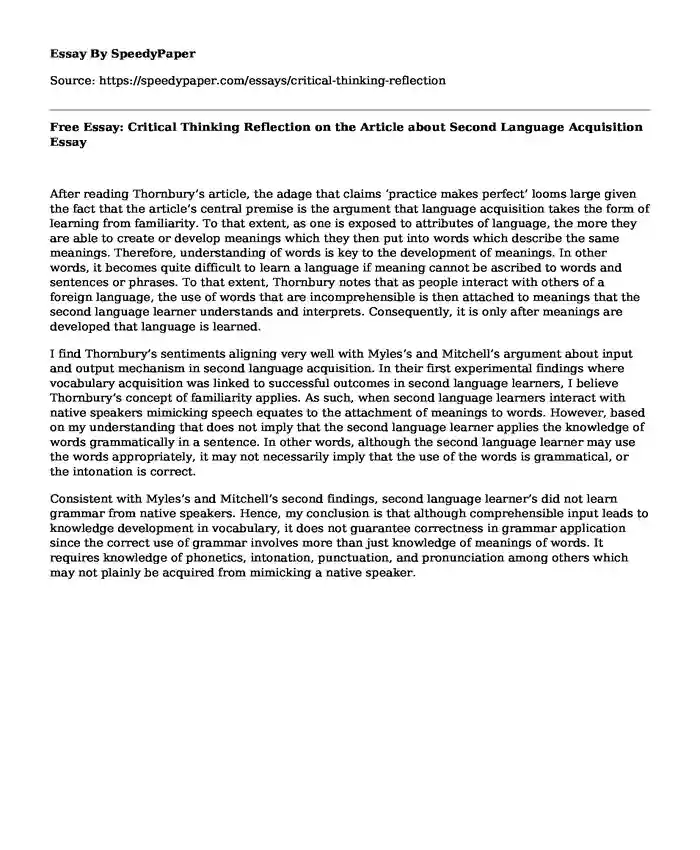After reading Thornbury’s article, the adage that claims ‘practice makes perfect’ looms large given the fact that the article’s central premise is the argument that language acquisition takes the form of learning from familiarity. To that extent, as one is exposed to attributes of language, the more they are able to create or develop meanings which they then put into words which describe the same meanings. Therefore, understanding of words is key to the development of meanings. In other words, it becomes quite difficult to learn a language if meaning cannot be ascribed to words and sentences or phrases. To that extent, Thornbury notes that as people interact with others of a foreign language, the use of words that are incomprehensible is then attached to meanings that the second language learner understands and interprets. Consequently, it is only after meanings are developed that language is learned.
I find Thornbury’s sentiments aligning very well with Myles’s and Mitchell’s argument about input and output mechanism in second language acquisition. In their first experimental findings where vocabulary acquisition was linked to successful outcomes in second language learners, I believe Thornbury’s concept of familiarity applies. As such, when second language learners interact with native speakers mimicking speech equates to the attachment of meanings to words. However, based on my understanding that does not imply that the second language learner applies the knowledge of words grammatically in a sentence. In other words, although the second language learner may use the words appropriately, it may not necessarily imply that the use of the words is grammatical, or the intonation is correct.
Consistent with Myles’s and Mitchell’s second findings, second language learner’s did not learn grammar from native speakers. Hence, my conclusion is that although comprehensible input leads to knowledge development in vocabulary, it does not guarantee correctness in grammar application since the correct use of grammar involves more than just knowledge of meanings of words. It requires knowledge of phonetics, intonation, punctuation, and pronunciation among others which may not plainly be acquired from mimicking a native speaker.
Cite this page
Free Essay: Critical Thinking Reflection on the Article about Second Language Acquisition. (2017, Sep 29). Retrieved from https://speedypaper.net/essays/critical-thinking-reflection
Request Removal
If you are the original author of this essay and no longer wish to have it published on the SpeedyPaper website, please click below to request its removal:
- Free Essay Sample on Panama Scandal
- Free Essay: Memory Analysis and The Notebook Movie
- Essay Sample Describing Perils of Climate Change for the Real Estate Industry
- Essay Example on the Tourism Industry
- Free Essay Answering Why Starbucks Failed in Australia
- Religions and Foreign Policy, Essay Sample for Everyone
- Free Essay Example: Biological Tracking
Popular categories





